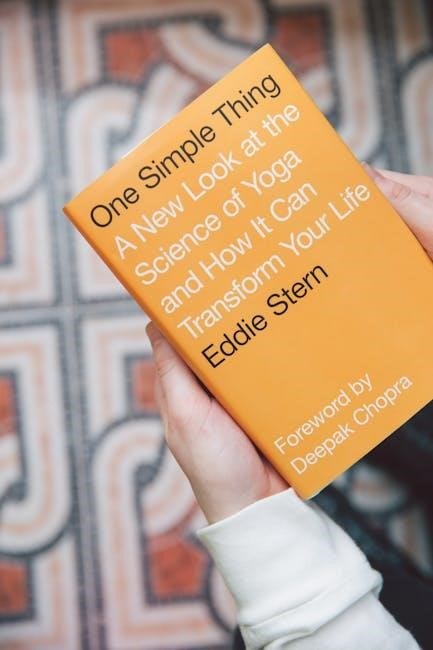
The AQA Science GCSE Revision Guide is a comprehensive resource designed to cover the entire curriculum, offering study tips, practice questions, and past papers to ensure exam success.
1.1 Overview of the AQA Science GCSE Curriculum
The AQA Science GCSE curriculum covers Biology, Chemistry, and Physics, divided into engaging topics like cell biology, chemical changes, and energy transfer. It is structured into clear tiers, with content tailored to both foundational and higher ability students. The curriculum emphasizes scientific enquiry, practical skills, and real-world applications, preparing students for assessments through a mix of multiple-choice and open-response questions, as well as practical examinations.
1.2 Importance of Structured Revision for Exam Success
Structured revision is crucial for achieving success in AQA Science GCSE exams. It helps students systematically cover the curriculum, identify weaknesses, and build confidence through practice. Utilizing revision guides, past papers, and online resources allows for targeted study, ensuring students are well-prepared for the exam format and content, ultimately leading to higher grades and a deeper understanding of the subject matter.

Key Resources for AQA Science GCSE Revision
Essential resources include AQA-approved revision guides, online platforms like BBC Bitesize, and practice question banks. These tools provide structured study materials, interactive learning, and progress tracking for exam success.
2.1 Recommended Revision Guides and Workbooks
Recommended revision guides include the AQA Science GCSE Science B Science in Context Revision Guide and CGP revision guides. These resources provide concise summaries, exam-style questions, and expert tips. Workbooks complement these guides, offering practical exercises and past paper questions to reinforce learning. They are designed to cover all key topics and help students track their progress effectively.
2.2 Online Platforms and Tools for Interactive Learning
Online platforms like BBC Bitesize and Study Mind offer interactive resources, including quizzes, videos, and practice questions. These tools provide engaging ways to revise, with topics covered in-depth. Many platforms feature progress tracking, allowing students to identify weak areas. Additionally, free podcasts and online workbooks are available, making revision accessible and flexible for all learners.
Effective Revision Strategies for Science Students
Effective revision involves active learning techniques, such as creating mind maps and flashcards, alongside regular practice questions to reinforce understanding and retention of key scientific concepts.
3.1 Time Management and Study Planning Tips
Effective time management is crucial for GCSE revision success. Create a structured study plan, prioritizing challenging topics and allocating specific time slots for each subject. Break tasks into manageable chunks, focusing on active learning techniques like flashcards and past papers. Regular breaks and maintaining a balanced schedule ensure sustained productivity and mental well-being. Utilize digital tools or planners to track progress and stay organized throughout the revision period.
3.2 Active Learning Techniques for Science Subjects
Active learning techniques enhance engagement and understanding in science subjects. Use flashcards to memorize key terms and concepts. Create concept maps to visualize relationships between topics. Engage in group discussions or teach concepts to peers to reinforce learning. Apply practical experiments or simulations to grasp complex ideas. Regularly test yourself with past papers to identify weak areas and focus your revision efforts effectively.
Practice Questions and Past Papers
Practice questions and past papers are essential for revision, helping students identify strengths, weaknesses, and areas needing focus. They provide real exam experience and build confidence.
4.1 Benefits of Using Past Papers for Revision
Using past papers for revision helps students familiarize themselves with exam formats, question types, and time constraints. Practicing under timed conditions improves time management and reduces anxiety. Past papers also highlight common topics and question patterns, allowing focused study. Additionally, they enable students to identify knowledge gaps and improve weak areas. Regular practice with past papers enhances confidence and ensures readiness for the actual exam experience.
4;2 How to Approach Practice Questions Effectively
Approach practice questions by first understanding the question type and content. Use mark schemes to assess your answers and identify gaps in knowledge. Prioritize weak areas and review relevant study materials; Time yourself to simulate exam conditions and improve speed. Regularly review and analyze mistakes to avoid repetition. Utilize practice questions strategically to reinforce learning and build confidence in tackling a variety of exam-style problems effectively.

Understanding the Exam Format and Content
Understanding the exam format and content is crucial for effective revision. Familiarize yourself with the structure, question types, and key topics to focus your study efforts efficiently.
5.1 Structure of AQA Science GCSE Exams
The AQA Science GCSE exams are divided into multiple papers covering Biology, Chemistry, and Physics. Each paper includes a mix of multiple-choice and longer-answer questions, testing knowledge and practical skills. The exams are timed, with durations varying by subject. Understanding the structure helps students target their revision effectively, ensuring they are prepared for the format and content of the assessments. This knowledge is key to achieving success.
5.2 Key Topics and Weightage in the Syllabus
The AQA Science GCSE syllabus focuses on core topics like cell biology, chemical reactions, and energy transfer. Each subject—Biology, Chemistry, and Physics—carries specific weightage, with practical skills assessed separately. Understanding the emphasis on these areas helps students allocate study time effectively, ensuring they cover high-weight topics thoroughly to maximize exam scores and achieve their academic goals efficiently.

Tips for Tackling Exam Questions
Mastering exam techniques involves reading questions carefully, planning answers, and using mnemonics. Practice past papers to identify common question patterns and refine time management skills effectively.
6.1 How to Construct High-Scoring Answers
To construct high-scoring answers, ensure clarity and conciseness. Always address the question directly, using bullet points for complex topics. Include relevant scientific terminology and diagrams where appropriate to enhance understanding. Refer to mark schemes to align your responses with examiners’ expectations, ensuring all key points are covered. Practice past papers to refine your technique and improve precision in addressing each part of the question effectively.
6.2 Common Mistakes to Avoid in Science Exams
Common mistakes include not reading questions carefully, leading to irrelevant answers; Poor time management can result in incomplete responses. Overloading answers with unnecessary information reduces clarity. Ensure scientific terminology is used accurately and consistently. Avoid misinterpreting graphs or data, as this can lead to incorrect conclusions. Practice past papers to identify and rectify these errors, improving overall performance in AQA Science GCSE exams.
Utilizing Teacher and Peer Support
Teachers offer expert guidance and additional resources, while peers provide collaborative learning opportunities. Group discussions and shared insights can deepen understanding and retention of complex scientific concepts.
7.1 Role of Teachers in Guiding Revision
Teachers play a crucial role in guiding revision by providing personalized study plans, additional resources, and expert advice tailored to individual needs. They offer regular progress checks, identify weak areas, and suggest targeted strategies to improve understanding and exam performance. Their insights and experience help students stay focused and motivated, ensuring a structured approach to achieving exam success.
7.2 Benefits of Group Study and Peer Discussion
Group study and peer discussion foster collaborative learning, allowing students to share knowledge, clarify doubts, and gain new insights. It encourages active participation, improves understanding, and enhances problem-solving skills through shared perspectives. Regular group sessions also provide moral support, reduce stress, and help students stay motivated. Additionally, discussing concepts with peers simulates exam scenarios, preparing students for real-time question responses and fostering confidence.

Maintaining Motivation and Work-Life Balance
Maintaining motivation involves setting realistic goals, tracking progress, and incorporating regular breaks. Balancing study with physical activity and a healthy diet ensures mental and physical well-being.
8.1 Strategies to Stay Motivated During Revision
Staying motivated during revision requires setting achievable goals, celebrating progress, and incorporating active learning techniques. Utilize resources like BBC Bitesize podcasts and practice questions to stay engaged. Prioritize mental well-being by maintaining a balanced routine, including breaks and physical activity. Regularly reviewing progress and adjusting study plans helps sustain focus and determination throughout the revision period.
8.2 Importance of Mental and Physical Well-being
Maintaining mental and physical well-being is crucial for effective revision. Regular exercise, balanced nutrition, and adequate sleep enhance cognitive function and focus. Mindfulness practices and stress management techniques help reduce anxiety, ensuring a clear and productive mind. Prioritizing self-care fosters resilience, enabling students to approach their studies with energy and confidence, ultimately supporting their academic success in AQA Science GCSE exams.
Final Tips for Exam Day Preparation
Stay calm, arrive early, and ensure all materials are organized. Use past papers for last-minute practice and maintain a positive mindset to tackle exams confidently.
9.1 Last-Minute Revision Strategies
Focus on high-weight topics and key concepts from past papers. Use flashcards for quick recall and prioritize practice questions to identify weak areas. Stay calm, organize your materials, and ensure a good night’s sleep before the exam. Utilize CGP Revision Guides and BBC Bitesize for targeted revision. Avoid cramming and review summaries or mindmaps for a final overview.
9.2 How to Stay Calm and Confident on Exam Day
Start with deep breathing exercises to manage nerves. Arrive early at the venue to avoid last-minute stress. Use positive self-talk to boost confidence. Skim through the paper first to identify easy questions. Answer straightforward ones first to secure early marks. Avoid panic if stuck—move on and return later. Stay hydrated and keep essential stationery handy. Remember, it’s okay to make mistakes; focus on your best effort.